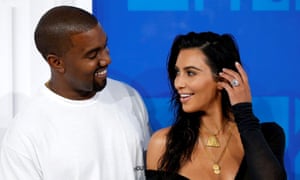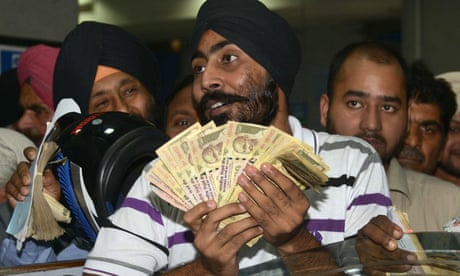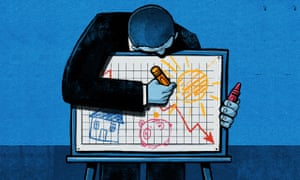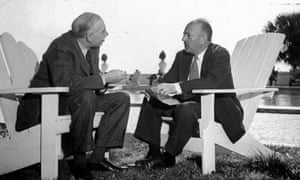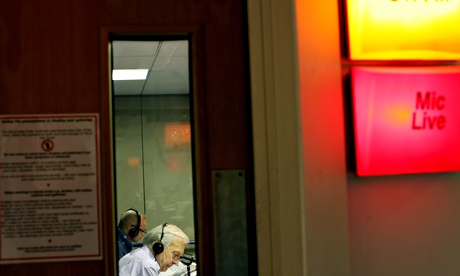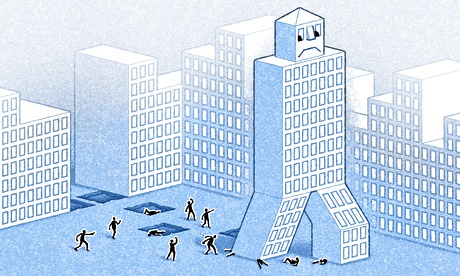It has been a seminal fortnight for the England cricket team. The country has a new Test match captain, and Joe Root's appointment could herald obvious changes to the team's approach, on and off the field. Yet whether the change of captaincy will have any positive or negative effect on results is an altogether different matter.
How much does individual leadership really matter? It's a question valid in cricket, sport and beyond.
"Being in charge isn't what it used to be," writes Moisés Naím in The End of Power. He shows how, for all the focus on the figureheads of teams, the powers of leaders are being eroded, in everything from business to politics and the military. "In the 21st century, power is easier to get, harder to use - and easier to lose," Naím says, arguing that, because of the digital revolution, the collapse of deference, and increased accountability within organisations, the powerful now face more limitations on their power than ever before. In the second half of the 20th century, weaker sides (in terms of soldiers and weapons) achieved their strategic goals in the majority of wars. The tenures of chief executives are becoming shorter, and those in charge also face more internal constraints on their power than ever before.
The most successful leaders have never been more venerated: the leadership-coaching industry is worth an estimated US$50 billion every year, brimming with corporate bigwigs attempting to learn the "lessons" of other leaders' success. Yet there is no real evidence of the enduring superstar qualities of those who cash in. Award-winning chief executives subsequently underperform, both against their own performance and against non-prize-winning CEOs, as research by Ulrike Malmendier and Geoffrey Tate shows. A lot of the lauded CEOs' previous success, in other words, might have been simply luck, and their subsequent underperformance regression to the mean.
The obsession with leadership extends to sport, yet leaders' power is being reduced here also. "In early-modern sports - the late 19th century - there was little or no coaching and hence the captain on the field had a significant leadership role to play," explains the sports economist and historian Stefan Szymanski. "As sport became more organised and coaching strategy developed, the role of the captain on the field diminished."
Compared with other sports, cricket is unusual in giving as much power to the captain as it does. Yet the cricket captain has not been immune to the wider erosion in the importance of leadership across sport. "The role is declining as the potential of coaches to add analytical support based on data analysis has increased," Szymanski says.
It is instructive to compare the responsibility of Mike Brearley to that of Root today. While Root will be supported by a coterie of coaches, physiologists and analysts, Brearley operated before the modern coach, and had to oversee warming up and stretching before each day. In the days of amateurism, captains even had to motivate amateurs to play at all. Today the captain is far more important in club cricket, where they have no coaches to aid them and often face an arduous task to even get a full team together, than in the professional game.
The power of individual coaches has also been diminished, because the responsibilities that were once the preserve of one man are now divided up among a multitude of personnel. In international cricket teams today, what were, 25 years ago, the sole functions of the coach are now divided up among what often amounts to a 2nd XI of support staff.
While the narrative of football's Premier League now revolves around managers, each result explored through the prism of their success or failure, perhaps they have never mattered less. In the 1930s, Arsenal manager Herbert Chapman not merely coached innovatively but led Arsenal to introduce numbered shirts, and build floodlights and a new stand. Unless they are named Arsene Wenger, the average Premier League manager now lasts a year in the job. Given the complexities of modern sport, there is a limit to what they can do. Indeed, studies of poorly performing clubs find that performances improve by an almost identical amount whether or not a new manager is appointed. The new boss, then, is rarely much better or worse than the old boss.
The book Soccernomics finds a 90% correlation between wage bills and league finishes over a ten-year period; just 10% of top-flight managers consistently overachieve when wages are factored into account. So, brilliant leadership can make a difference, but only in exceptional cases. It was not merely modesty that led Yogi Berra, when asked what made a great baseball coach, to reply: "A great ball team."
 Joe Root will enjoy the services of several coaches, analysts and managers in his role as England's Test captain, thereby diffusing his leadership responsibilities © Getty Images
Joe Root will enjoy the services of several coaches, analysts and managers in his role as England's Test captain, thereby diffusing his leadership responsibilities © Getty ImagesThe captain in golf's Ryder Cup has a job akin to the coach in other sports. It offers a prime example of how narratives are constructed around the leader, assigning them more power than they really have. In The Captain Myth, Richard Gillis explores how victories or defeats are retrospectively explained through a captain's mistakes or shrewd decisions. Every match must consist of a Good Captain and Bad Captain, and the Good Captain is always the victor. The trouble with this simplistic narrative is that, as Paul Azinger, who led the US to victory in the 2008 Ryder Cup, reflects, "There have been some captains who have micro-managed everything and lost. There have been captains who were drunk every night and won. There is no blueprint on winning."
There is a paradox to leadership in modern sport. Leaders have never faced more scrutiny - but most have never had less power. Professionalism and the explosion of money in sport means that decisions once the sole preserve of a captain or head coach are now influenced by dozens of others behind the scenes: specialist coaches, performance analysts who mine data, dieticians, psychologists and those responsible for nurturing academy players. Perhaps the cricket team that has performed most above themselves in recent years is Northamptonshire in the T20 Blast. Reaching three finals in four years has not just been a triumph for Alex Wakely's astute captaincy, but also for the coaching staff, the data analyst, the physio and all those involved in player recruitment.
The reluctance to recognise the limits of leadership has deep roots. We are a storytelling species. People make for much better stories than underlying, impersonal factors; Soccernomics shows that success in international football can broadly be explained by three factors - population size, GDP, and experience playing the sport - that have nothing to do with leadership. In The Captain Myth, Gillis writes that, because of psychological biases "meshed with our obsession with celebrity, it's easy to understand how the captain has become such a prominent figure in the sports world". In cricket, he tells me that "the decisions of the captain can be significant, but the relationship between the decisions and the outcome is not linear, it's far messier than that, and makes a far less enjoyable tale".
As much as coaches and fans crave inspirational leadership, in modern sport, with huge and complex professional structures to manage, perhaps it is easier for a single leader to make a negative difference than a positive one. "Good captaincy and coaching have far less of an impact on outcomes than bad captaincy and coaching does," believes Trent Woodhill, a leading T20 coach. Bad leadership can marginalise and disempower the backroom team, effectively preventing support staff from doing their jobs properly. Beyond sport, Naím believes that we are in an age of "heightened vulnerability to bad ideas and bad leaders". The analysis extends beyond sport. Disruptive technology has not only changed the nature of power, Naím believes, but also led to an age of "heightened vulnerability to bad ideas and bad leaders".
Root has captained in just four first-class games, yet this is in keeping with modern norms. That Virat Kohli, Steven Smith and Kane Williamson have all been successful after their appointments as captain, despite a derisory amount of prior leadership experience in professional sport, suggests that captaincy experience - and, by implication, captaincy skill - is simply not that important. The absence of specialist captains, at both domestic and international level, also reflects a recognition of the limits of what a skipper can achieve.
"Playing in the middle and understanding the demands is more important than captaincy," Andrew Strauss said when Root was unveiled. The greatest potential boon of a Root captaincy lies not in a new culture he might create, or more enterprising leadership, but the possibility of greater run-scoring: if Alastair Cook is reinvigorated without the leadership, while, in keeping with recent England captains, Root's own batting initially enjoys an upswing.
Leadership is not irrelevant. Occasionally cricketers are particularly suited to a leadership role - Brearley, Graeme Smith, or Misbah-ul-Haq, say; some, like Kevin Pietersen, might be the opposite. But the overwhelming majority of captains are bunched in the middle - and, in any case, a captain's ability to do good is marginal, now more than ever. For all the tendency to focus on a team's figurehead, great leadership is a collective endeavour, and operates against wider limitations. Perhaps this is why Strauss is so unperturbed by Root's lack of captaincy experience. Only rarely does the identity of a captain really matter.
